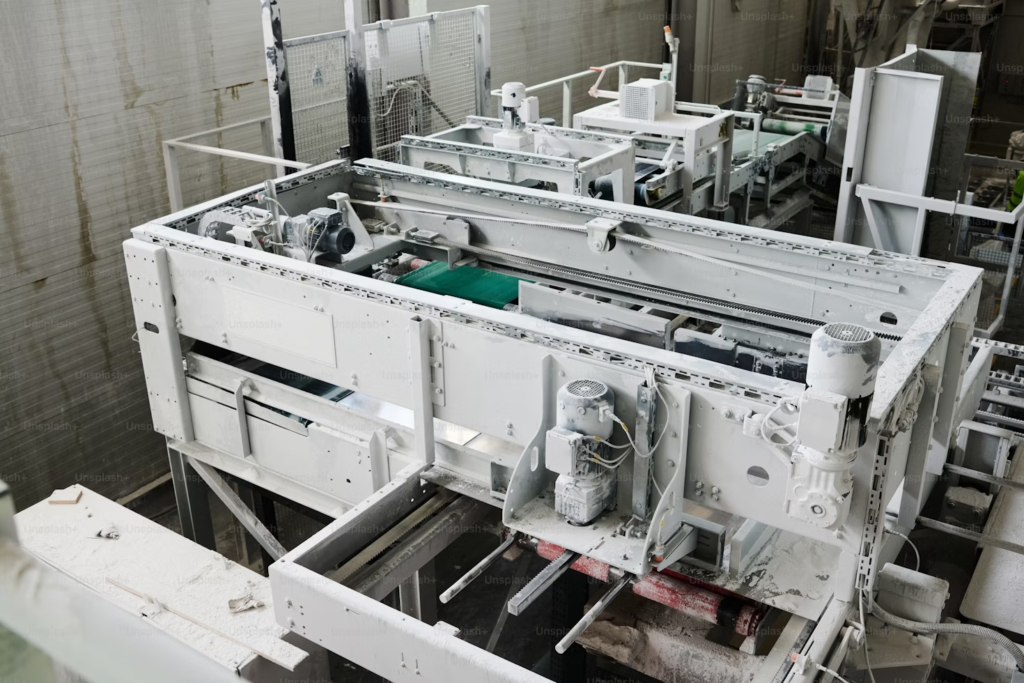Introduction:
Advanced semiconductor manufacturing has been a critical topic of discussion among global superpowers, especially with the development of extreme ultraviolet (EUV) lithography machines. These machines, primarily developed by the Dutch company ASML, are essential for producing the latest generation of microchips. Experts and policymakers frequently ask, “Why is China Having EUV Machines So Scary? “To understand the full implications, it’s important to consider the geopolitical, economic, and technological factors involved.
The Strategic Importance of EUV Machines:
To grasp “Why is China Having EUV Machines So Scary,” we must first understand EUV lithography and why it is pivotal in semiconductor manufacturing. EUV machines represent the cutting-edge technology for fabricating the most advanced semiconductors with nodes smaller than 7 nanometers. These microchips are faster, more efficient, and crucial for various applications, from consumer electronics to military hardware. Control over EUV technology equates to the future of advanced computing and artificial intelligence.
For the United States and its allies, retaining dominance in semiconductor technology is critical for national security and economic leadership. The prospect of China acquiring EUV machines raises alarms because it could shift the balance of technological power. It is not merely about economic competition; it touches on concerns over military capabilities and cybersecurity. Thus, the anxiety surrounding “Why is China Having EUV Machines So Scary” extends beyond econ “mics to the core of national defence strategies.
Potential Impacts on Global Semiconductor Supply Chains:
Another angle to consider when asking “Why is China Having EUV Machines So Scary” is the potential im” act on global semiconductor supply chains. The semiconductor industry is highly globalized, with different countries specializing in various stages of the production process. The United States leads in design, while Taiwan and South Korea dominate manufacturing. Europe, particularly the Netherlands, is pivotal due to ASML’s monopoly over ASML’schnology.
National Security Concerns:
The question of “Why is China having UV machines so scary” is also deeply intertwined with national security concerns. Advanced semiconductors are the backbone of civilian technology and critical for military applications, including missile guidance systems, surveillance, and cyber warfare capabilities. Control over semiconductor manufacturing technology could provide a strategic advantage in developing next-generation weapons and defensive systems.
If China obtains EUV machines, it could accelerate its military modernization efforts. The potential for dual-use technology—where advancements in civilian tech also benefit military capabilities—is a significant concern for the United States and its allies. The fear is that China’s access to China could rapidly enhance its military infrastructure, potentially destabilizing the balance of power in sensitive regions like the South China Sea and the Taiwan Strait. This is a central reason why “Why is China Having EUV Machines So Scary?” remains a pressing “issue for defence strategists.
Technological Leap and Economic Ramifications:
When considering “Why is China Having EUV Machines So Scary,” one must also acknowledge the potential economic ramifications. China’s access to EUVChina’s technology could mark a significant technological leap, propelling its semiconductor industry to the forefront of innovation. Such an advancement would challenge the dominance of established players like the United States, Taiwan, and South Korea and could lead to significant economic shifts.
If China masters EUV technology, it could begin to compete directly with major semiconductor manufacturers, potentially leading to a price war or establishing new standards favouring Chinese technology. This scenario could undermine the market positions of Western companies, affecting everything from profit margins to employment rates in the tech sector. The economic implications of this shift help explain “Why is China Having EUV Machines So Scary” to both policymaker” and industry leaders.
Intellectual Property and Trade Secrets:
Another critical aspect of “Why is China Having EUV Machines So Scary” relates to concerns “over intellectual property (IP) and trade secrets. The semiconductor industry is highly competitive and driven by innovation. The fear that China might not adhere to stringent IP protections raises concerns about the potential for technology theft or reverse engineering of EUV machines. If China were to replicate this technology, it could mass-produce its versions of EUV lithography machines, undercutting companies like ASML and altering the competitive landscape of the semiconductor industry.
Moreover, the fear is not just about economic losses but also the strategic dissemination of sensitive technologies that could be used for purposes beyond commercial gain. The possible unauthorized transfer of this advanced technology to other countries could further complicate the geopolitical landscape, creating new challenges for global technology governance. This possibility adds another layer to the question of “Why is China Having EUV Machines So Scary?”
The Global Response and Policy Measures:
Given the concerns surrounding “Why is China Having EUV Machines So Scary,” it’s no surprise that “tit’sit’s global response has been swift and decisive. The United States has led efforts to restrict the export of advanced semiconductor manufacturing equipment to China, pressuring allies like the Netherlands to follow suit. This has led to an effective embargo on EUV machines in China, aimed at stalling its ambitions in the semiconductor space.
However, the question remains whether these measures will be effective in the long term. China’s pursuit of technological self-reliance suggests it may eventually develop its EUV capabilities independently, albeit slower. This ongoing technological race is a central theme in understanding “Why is China Having EUV Machines So Scary” and what the future “might hold for global tech leadership.
Conclusion:
To summarize, “Why is China Having EUV Machines So Scary?” can be answered from” multiple perspectives. It is about maintaining global technological dominance, safeguarding economic interests, and ensuring national security. The potential for China to gain an edge in advanced semiconductor technology raises significant concerns for the United States and its allies, who see this as a challenge to their current technological and strategic advantage.

